LIES and their ability to wreak havoc on all that they touch is the devastating theme that looms large in Lyndsey Turner’s thrilling adaptation of The Crucible.
Turner’s take is true to Arthur Miller’s classic, which is set in 17th century Salem.
There a group of young women conspire to protect one another after they are caught enjoying ungodly pursuits in the woods.
But their lies soon prove to have devastating effects on the community around them – bringing the witch trials the town is now synonymous with and quickly placing their family, friends and neighbours within spitting distance of having a charge put against them.
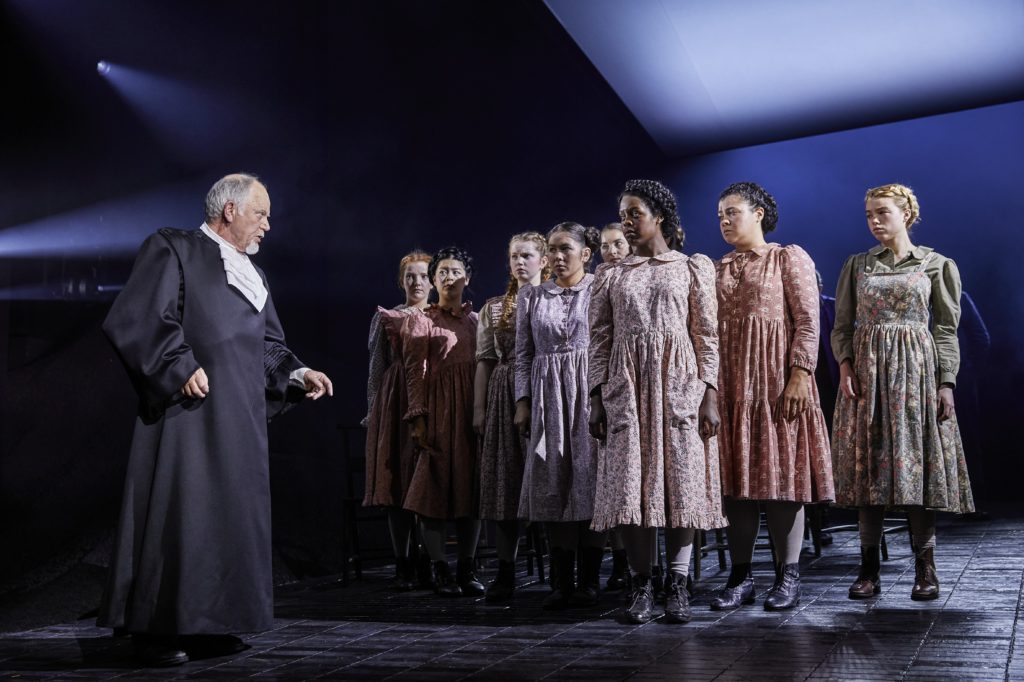 Matthew Marsh as Deputy Governor Danforth and the cast of The Crucible west end (PICS: Brinkhoff-Moegenburg)
Matthew Marsh as Deputy Governor Danforth and the cast of The Crucible west end (PICS: Brinkhoff-Moegenburg)Following a sellout run at the National Theatre, Turner’s stunning take on Miller’s cautionary tale is captivating from the very first scene.
Located for a short run at the Gielgud Theatre, Es Devlin’s set introduces Salem shielded by a sheet of rain.
It is impressive to behold when taking your seats in this historic theatre and it works as a dramatically effective scene setter.
The presence of this continuous shower of water makes for a dark, slightly moist, theatre.
With that comes a palpable sense that what you are about to watch won’t be pretty and it may not end well.
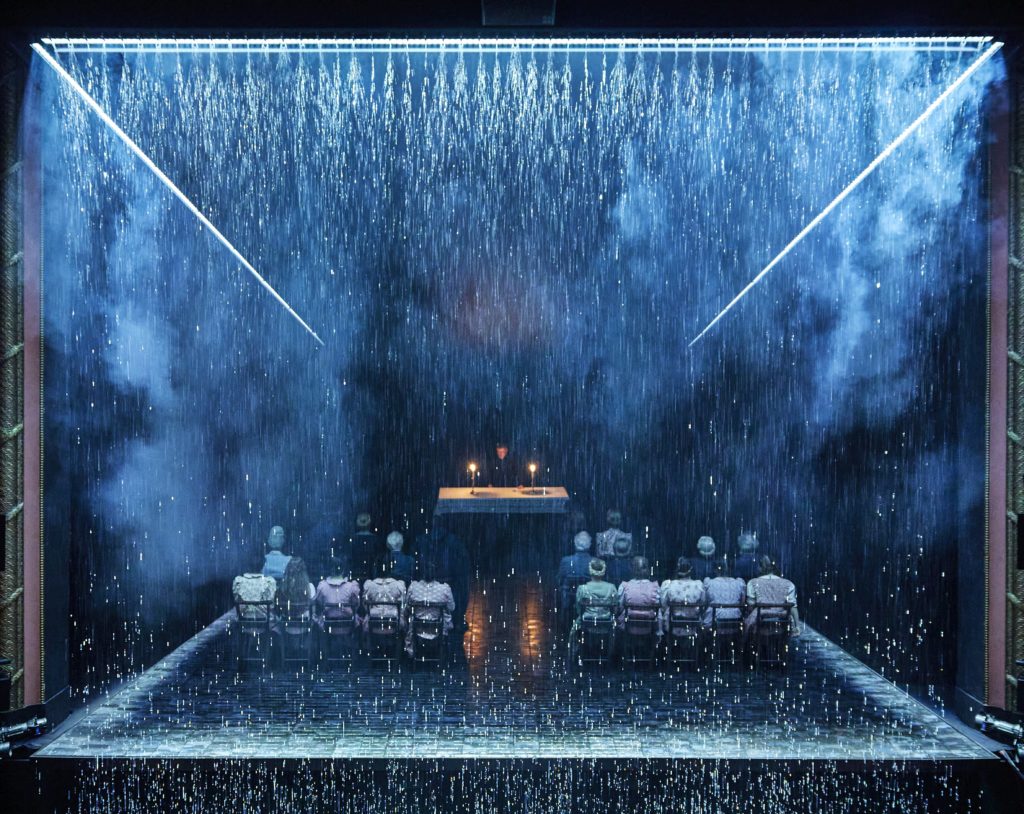 A sheet of rain sets the scene for The Crucible
A sheet of rain sets the scene for The CrucibleAnd then the rain parts are we are there in the thick of it in Salem.
Here is a town bound by both religion and state - where girls are expected to be seen and not heard.
That’s not the case for Miller’s girls, of course, as anyone who has read this text knows.
No, these young women, led by the emotionally scarred and romantically scorned Abi, are taking control of a situation that could have seen them all punished by those who rule the patriarchal world they find themselves within.
And they do that by brazenly lying their way through it – calling out witchcraft and implicating their elders as the cause of their actions.
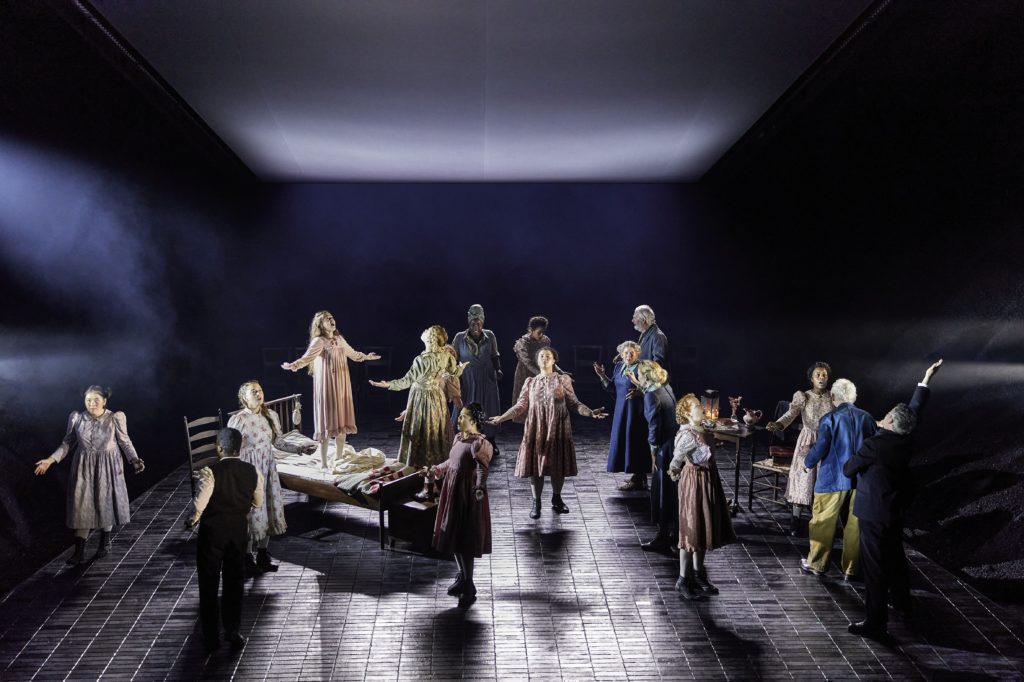 The cast of The Crucible west end (PICS: Brinkhoff-Moegenburg)
The cast of The Crucible west end (PICS: Brinkhoff-Moegenburg)Soon enough their continued lies bring power, ultimate power.
These young, immature and fearful girls ultimately become responsible for the life or death of those in their small farming community and it’s uncomfortable, albeit captivating to watch.
There is a hugely impressive cast at play here, one which keeps the tension high throughout the nearly three-hour production.
Abi, played by Milly Alcock, leads the defiant girls with gusto.
She is determined, unsentimental and vengeful but also brilliant at the ‘pretence’ which has sealed the fate of this unfortunate town.
As such she makes for unnerving viewing. So much is at stake and it is never really clear just how much she will get away with.
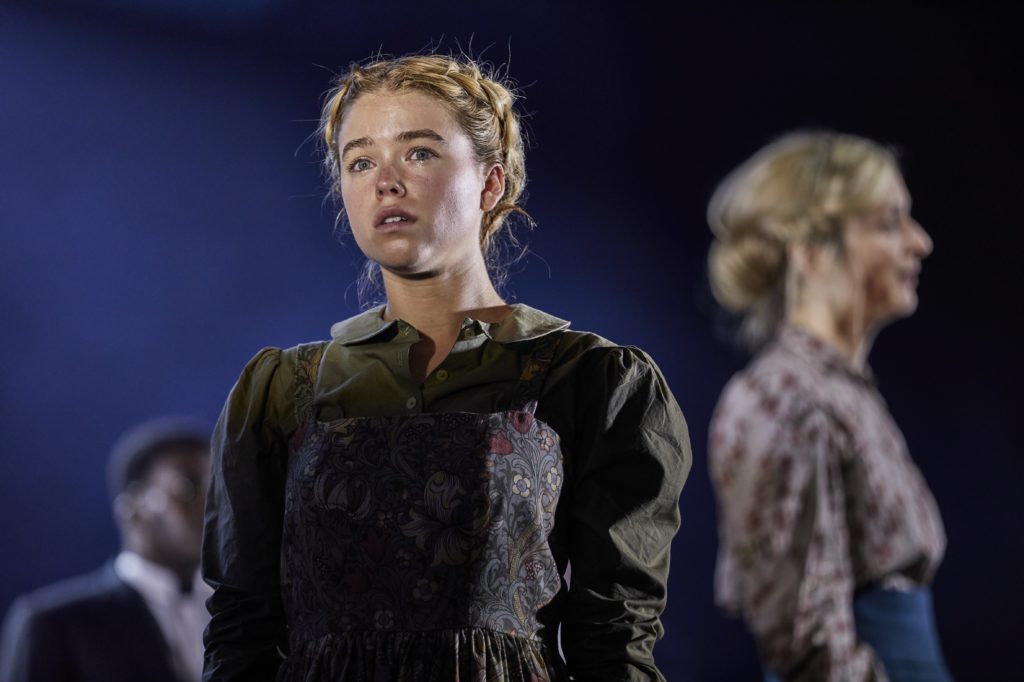 Milly Alcock as Abigail 'Abi' Williams in The Crucible (PICS: Brinkhoff-Moegenburg)
Milly Alcock as Abigail 'Abi' Williams in The Crucible (PICS: Brinkhoff-Moegenburg)There are similarly stellar performances from Fisayo Akinade as the Reverend John Hale, Nick Fletcher as the Reverend Samuel Harris and from Matthew Marsh as Deputy Governor Danforth.
But the driving force of this production is Dubliner Brian Gleeson, who plays the good yet flawed John Proctor.
Gleeson puts in a well-executed performance as the conflicted farmer whose extra-marital affair could be seen to be the cause of the entire tragedy that befalls the town that he calls home.
Proctor is a man besieged by personal battles, although his entry and importance to the story is something of a slow burn.
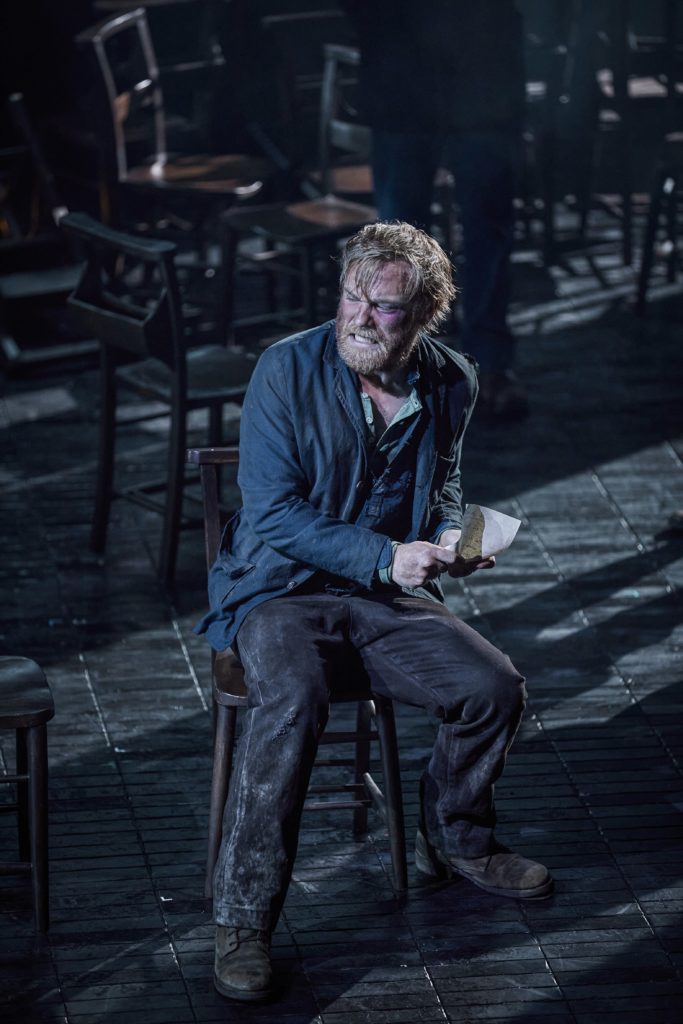 Brian Gleeson as John Proctor in The Crucible (PICS: Brinkhoff-Moegenburg)
Brian Gleeson as John Proctor in The Crucible (PICS: Brinkhoff-Moegenburg)What begins with a battle to forgive himself and repair his marriage soon becomes a battle to save his wife, to save his reputation and ultimately to save his town.
But it all ends up coming down to a battle for the truth.
Gleeson’s piercing portrayal of Proctor’s dedication to that cause is gripping from start to finish.
And it’s a performance not to be missed while The Crucible is in town.
The Crucible is at The Gielgud Theatre until September 2. For tickets click here.

